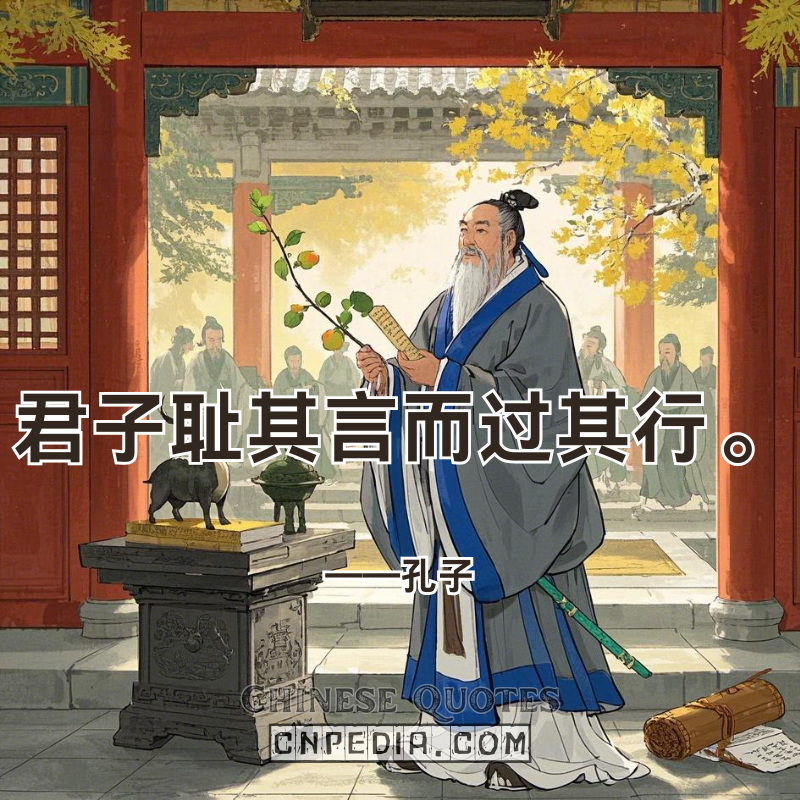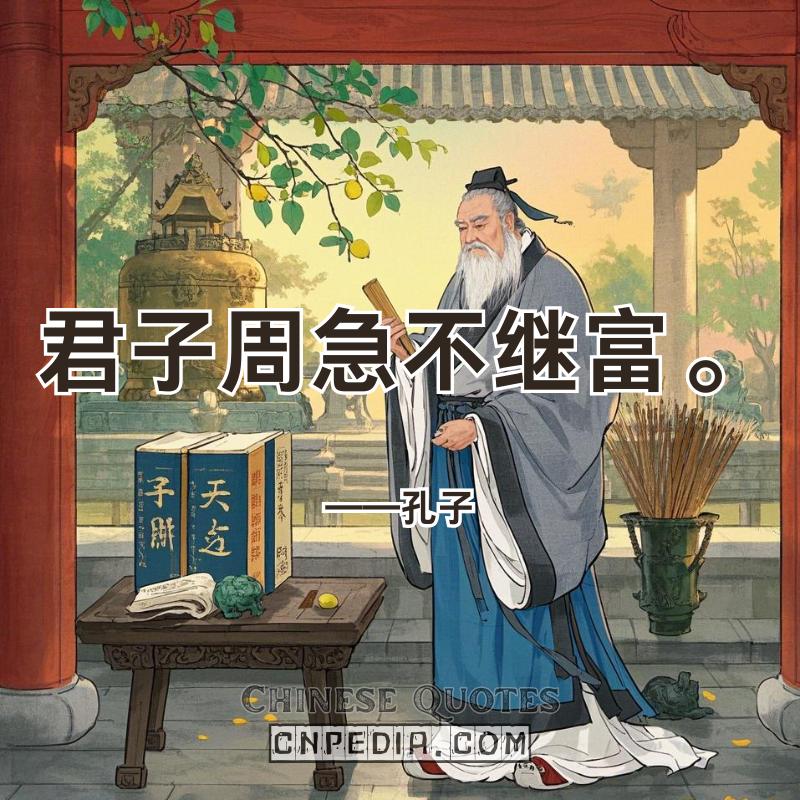11 Articles
Tags :Ethical AI

君子博学于文,约之以礼。——孔子(jūn zǐ bó xué yú wén, yuē zhī yǐ lǐ — Kǒngzǐ) Translation: “Nobles cultivate broad learning, bound by ritual refinement.”Explanation: Confucius’ knowledge containment principle “君子博学于文(jūn zǐ bó xué yú wén), 约之以礼(yuē zhī yǐ lǐ)” (Nobles cultivate broad learning, bound by ritual refinement) establishes humanity’s earliest framework for ethical knowledge management. The character 约(yuē)—combining 糸(mì, silk thread) and 勺(sháo, ladle)—metaphorizes structured curation: like weaving disparate threads into patterned brocade, wisdom requires both expansive gathering (博学(bó xué)) and disciplined organization (约礼(yuē lǐ)). This philosophy shaped 汉朝石渠阁(hàn cháo shí qú gé) (Han Stone Canal Academy), where scholars copied texts onto 30kg bamboo bundles (博学(bó xué)), then bound them with silk ribbons (约(yuē)) coded by ethical categories—military strategies required red bindings only removable...

君子有九思:视思明,听思聪,色思温,貌思恭,言思忠,事思敬,疑思问,忿思难,见得思义。——孔子(jūn zǐ yǒu jiǔ sī — Kǒngzǐ) Translation: “Nobles maintain nine reflections: clarity in seeing, acuity in hearing…” Explanation: Confucius’ multisensory mindfulness framework “君子有九思(jūn zǐ yǒu jiǔ sī)” establishes humanity’s earliest neurolinguistic programming through nine cognitive reflections: 视思明(shì sī míng) (visual clarity), 听思聪(tīng sī cōng) (auditory acuity), 色思温(sè sī wēn) (temperamental warmth), 貌思恭(mào sī gōng) (postural respect), 言思忠(yán sī zhōng) (verbal integrity), 事思敬(shì sī jìng) (task dedication), 疑思问(yí sī wèn) (inquisitive doubt), 忿思难(fèn sī nán) (anger foresight), and 见得思义(jiàn dé sī yì) (ethical discernment). Each 思(sī) (reflection) functions as a cognitive checkpoint, predating modern executive function theories by 2,500 years. The Han Dynasty 博士制度(bó shì zhì dù) (Erudite System) operationalized this through 九考(jiǔ kǎo) (Nine Examinations), where officials rotated through...

君子耻其言而过其行。——孔子(jūn zǐ chǐ qí yán ér guò qí xíng — Kǒngzǐ) Translation: “Nobles shame words outpacing deeds.”Explanation: Confucius’ integrity principle “君子耻其言而过其行(jūn zǐ chǐ qí yán ér guò qí xíng)” (Nobles shame words outpacing deeds) establishes humanity’s earliest anti-hyperbole accountability framework. The character 耻(chǐ)—combining 耳(ěr, ear) and 心(xīn, heart)—encodes conscience-driven restraint where ethical listening precedes speech. This philosophy shaped 汉对策制度(hàn duì cè zhì dù) (Han Dynasty Policy Debate Protocols), where officials proposing reforms had to first submit five years of implementation records (行(xíng) before presenting arguments (言(yán)). Tang Dynasty’s 考功令(kǎo gōng lìng) (Merit Evaluation Edicts) operationalized this principle: bureaucrats making unfulfilled claims faced public 耻(chǐ) rituals—wearing inverted hats until achieving pledged results. Modern parallels include Twitter’s Community Notes system, which flags...

君子周急不继富。——孔子(jūn zǐ zhōu jí bù jì fù — Kǒngzǐ) Translation: “Nobles aid the urgent, not subsidize the wealthy.” Explanation:Confucius’ philanthropic principle “君子周急不继富(jūn zǐ zhōu jí bù jì fù)” (Nobles aid the urgent, not subsidize the wealthy) establishes humanity’s earliest priority-based redistribution framework. The character 周(zhōu)—combining 辶(chuò, proactive movement) and 吉(jí, critical need)—encodes targeted intervention where aid flows dynamically to crisis points. This philosophy shaped 常平仓(cháng píng cāng) (Ever-Normal Granaries) in Song Dynasty China, where grain reserves were allocated to famine regions within 72 hours, while wealthy prefectures paid 义仓税(yì cāng shuì) (charity taxes) instead of receiving subsidies. Qing Dynasty’s 赈灾条例(zhèn zāi tiáo lì) (Disaster Relief Statutes) operationalized 周急(zhōu jí) through mobile relief teams dispatched via 驿马(yì mǎ) (courier horses). Modern...

言必信,行必果。——孔子(yán bì xìn, xíng bì guǒ — Kǒngzǐ) Translation: “Words must be trustworthy, actions must bear fruit.” Explanation: Confucius’ performative ethics principle “言必信(yán bì xìn), 行必果(xíng bì guǒ)” (Words must be trustworthy, actions must bear fruit) establishes humanity’s earliest accountability framework. The character 信(xìn) combines 讠(yán, speech) and 人(rén, human)—visualizing verbal contracts as human bonds. 果(guǒ) merges 木(mù, tree) and 田(tián, field)—metaphorizing action outcomes as cultivated harvests. This agricultural analogy shaped 符节制度(fú jié zhì dù) (Tally System) in Han Dynasty China, where split bamboo tokens (信(xìn) verified official orders, and harvest quotas (果(guǒ) determined regional governance efficacy. Historical applications enforced accountability. Ming Dynasty merchants using 会票(huì piào) (early checks) faced decapitation for defaulting—extreme 必果(bì guǒ) enforcement ensuring commercial trust. Modern...

君子固穷,小人穷斯滥矣。——孔子(jūn zǐ gù qióng, xiǎo rén qióng sī làn yǐ — Kǒngzǐ) Translation: “Nobles endure poverty; plebeians in poverty run amok.” Explanation: Confucius’ adversity response axiom “君子固穷(jūn zǐ gù qióng), 小人穷斯滥矣(xiǎo rén qióng sī làn yǐ)” (Nobles endure poverty; plebeians in poverty run amok) establishes humanity’s earliest behavioral economics framework. The character 滥(làn)—combining 氵(shuǐ, water) and 监(jiān, observation)—metaphorizes moral dissolution as unregulated floods breaching societal levees. This principle shaped 常平仓(cháng píng cāng) (Ever-Normal Granary) systems during Han droughts, where nobles distributed grain while plebeians faced 滥(làn)-prevention labor duties to maintain order. Neuroscience now deciphers this dichotomy. 2023 fMRI studies reveal that 固穷(gù qióng) (enduring poverty) activates the anterior cingulate cortex (resilience planning), while 滥(làn) behavior correlates with amygdala-driven impulsivity. Modern...

君子不以言举人,不以人废言。——孔子(jūn zǐ bù yǐ yán jǔ rén, bù yǐ rén fèi yán — Kǒngzǐ) Translation: “Nobles don’t promote based on speech, nor dismiss speech based on person.” Explanation: Confucius’ meritocratic axiom “君子不以言举人(jūn zǐ bù yǐ yán jǔ rén), 不以人废言(bù yǐ rén fèi yán)” (Nobles don’t promote based on speech, nor dismiss speech based on person) establishes humanity’s earliest framework for objective evaluation. The character 举(jǔ)—composed of 舁(yú, collective lifting) and 子(zǐ, child)—visually encodes impartial nurturing: ideas are elevated based on intrinsic worth, not their advocates’ status. This philosophy shaped 科举糊名制(kē jǔ hú míng zhì) (Sealed-Name Imperial Exams), where candidates’ papers were anonymized to prevent bias toward eloquent writers (以言举人(yǐ yán jǔ rén)). Historical applications combated systemic prejudice. Song Dynasty’s 锁院制(suǒ...

以直报怨,以德报德。——孔子(yǐ zhí bào yuàn, yǐ dé bào dé — Kǒngzǐ) Translation: “Repay grievances with justice; repay virtue with virtue.” Explanation: Confucius’ justice principle “以直报怨(yǐ zhí bào yuàn), 以德报德(yǐ dé báo dé)” (Repay grievances with justice; repay virtue with virtue) establishes a reciprocal ethical framework contrasting religious pacifism. The term 直(zhí) (justice) combines 十(shí, ten) and 目(mù, eyes)—symbolizing multi-perspective fairness rather than unilateral retaliation. This differs from Jesus’ turn the other cheek by emphasizing calibrated accountability, as seen in 《吕刑》(lǚ xíng) (Lü Penal Code) where punishments matched crimes’ societal harm ratios. Historical applications balanced retribution and rehabilitation. Tang Dynasty’s 三复奏(sān fù zòu) system allowed convicts to appeal verdicts three times, ensuring 直(zhí)-aligned proportionality. Modern parallels include the International Criminal Court’s gravity-based...

君子成人之美,不成人之恶。——孔子 (jūn zǐ chéng rén zhī měi, bù chéng rén zhī è — Kǒngzǐ) Translation: “Nobles cultivate others’ virtues, not their vices.” Explanation: Confucius’ ethical imperative “君子成人之美(jūn zǐ chéng rén zhī měi), 不成人之恶(bù chéng rén zhī è)” (Nobles cultivate others’ virtues, not their vices) establishes the earliest framework for prosocial leadership. The character 成(chéng)—featuring the 戈(gē) (spear) radical—symbolizes active cultivation through deliberate intervention, not passive observation. This principle shaped the 儒家经典(rú jiā jīng diǎn) (Confucian classics)’ mentorship protocols, where scholars were ethically bound to amplify peers’ 美(měi) (virtues) while strategically ignoring 恶(è) (vices) to avoid negative reinforcement. Historical applications revolutionized governance. Ming Dynasty’s 考成法(kǎo chéng fǎ) (Merit Cultivation System) mandated officials to document subordinates’ strengths monthly—an early 360-degree review focused...

君子喻于义,小人喻于利。——孔子(jūn zǐ yù yú yì, xiǎo rén yù yú lì — Kǒngzǐ) Translation: “Nobles awaken to righteousness; plebeians awaken to profit.” Explanation: Confucius’ maxim “君子喻于义(jūn zǐ yù yú yì), 小人喻于利(xiǎo rén yù yú lì)” (Nobles awaken to righteousness; plebeians awaken to profit) establishes humanity’s earliest cognitive hierarchy theory of ethics. The character 喻(yù)—combining 口(kǒu, speech) and 俞(yú, digest)—metaphorizes moral internalization as a process of verbal instruction transformed into visceral conviction. This framework shaped the 士大夫(shì dà fū) (scholar-official) class’s governance philosophy, where policy decisions prioritized collective 义(yì) (justice) over individual gain. Historical applications abound. Edo-period Japan’s 企業士(kigyōshi) (samurai-merchants) blended Confucian 义(yì) with commerce, refusing profitable opium trade on ethical grounds. Modern parallels emerge in ESG investing’s tripartite framework—environmental 义(yì) superseding...









